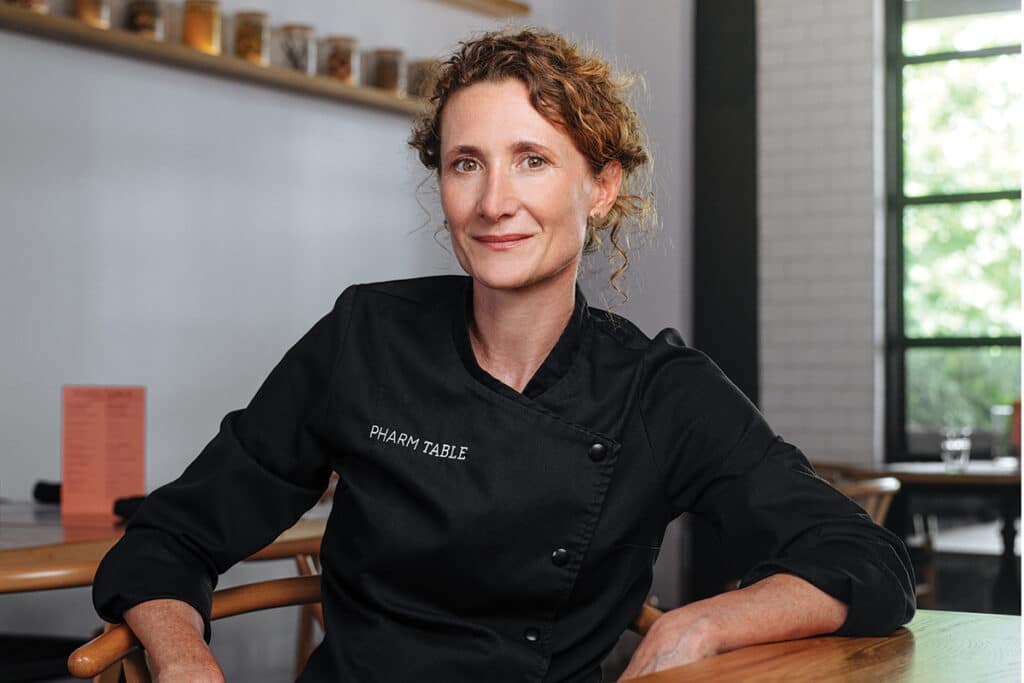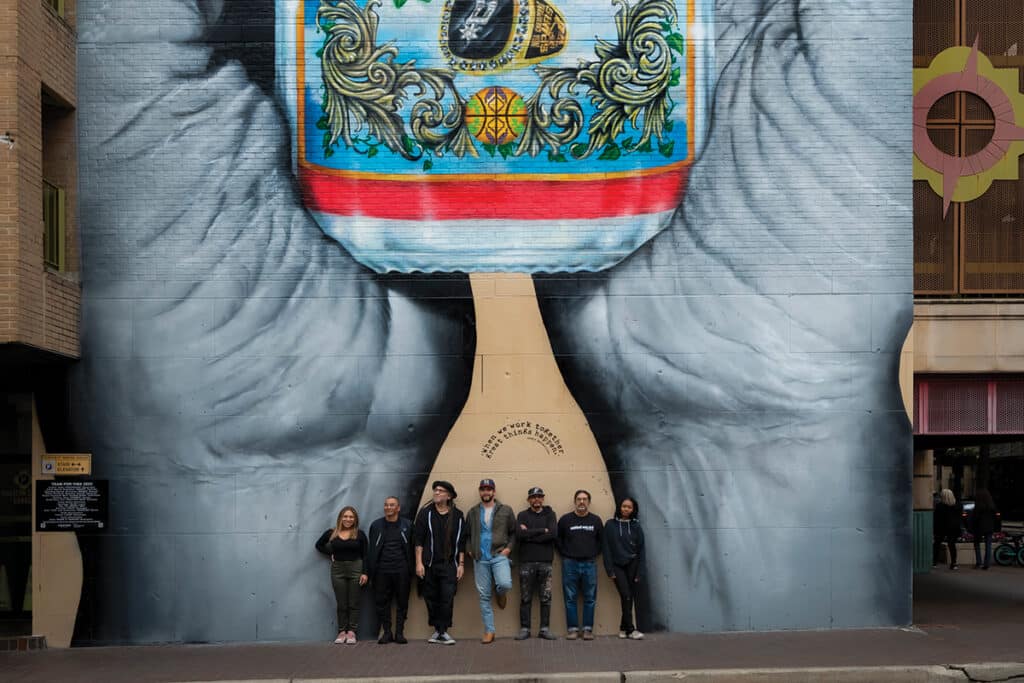At the recent fundraiser for the San Antonio Opera (SAO), a good part of the entertainment was provided by five young women who collectively call themselves Stiletto. They have high voices and high heels, and together they make beautiful sounds. For the occasion, they sang several operatic arias but also veered into other genres by delivering their version of Unchained Melody; Carry on, My Wayward Son and even Lady Marmalade. “We try to do numbers that are meaningful to several generations,” explains lyric soprano Emily Ward the next day when we meet to talk in SAO’s offices. “We are still a new group –- we have only been together since March — so we are still honing our sound and developing our repertoire. But we have enjoyed it very much.” Besides Ward, who is also the Opera’s resident artist, Stiletto consists of mezzo soprano Krystal Jarrell and three other sopranos, April Hufty and twin sisters Davy Green and Diane House. The idea to form such an ensemble came from SAO’s founder and artistic director, Mark Richter, who wanted a group to represent his organization at the Luminaria event. He put the five women together and gave them a week to rehearse before “throwing them into the fire.” But he had a plan for them beyond Luminaria. Richter had already envisioned Stiletto as SAO’s ambassadors in the community, and he promised to act as their manager.
“We are still figuring out what our relationship with the Opera is going to be,” says Ward, “but as a group, we are in the business of promoting opera. We want to make it more approachable to people.”
What makes Stiletto unique among all-female vocal ensembles, she says, is that they are all highly educated in making music, which gives them a level of versatility other groups may not have. Indeed. Ward, for instance, has both a bachelor’s and a master’s degree in vocal performance and is currently enrolled in a doctoral program at UT Austin. And she is eagerly acquiring stage experience as well. In the last couple of years, she has appeared in a number of smaller roles in SAO’s productions, including Madame Butterfly, Don Giovanni and Suor Angelica. In February, she will portray Barbarina in Le Nozze di Figaro and will be the understudy for the principal soprano part of Susanna. While we are talking about Figaro, she pulls a huge volume from her purse and plops it on the table between us. “I am learning all of this now,” she announces. “I have to be ready before the rehearsals start.” “All of this” is the entire score and libretto for the parts of Susanna and Barbarina. The book looks intimidating; lots of notes and words.
A subversive comic masterpiece, Mozart’s Le Nozze di Figaro (The Marriage of Figaro) is centered on an aristocratic household where servants and masters tangle with and plot against each other in hilarious ways. The opera was at first banned in 18th-century Vienna because it made fun of the aristocracy. But today it’s mostly appreciated for its wonderful music and madcap staging, complete with mistaken identities, disguises and love imbroglios.
“Barbarina is a fun character. She gets her own aria, and she is alone on stage while singing it,” notes Ward with appreciation. “And she is important to the plot even though she is not the central character. And Susanna’s is the longest soprano part in opera; she is on stage practically the whole time.”
The Appeal of Opera
Oddly, Ward had little exposure to opera until her freshman year in college. She had chosen to major in voice because she liked performing and thought she might end up teaching choir and perhaps acting in musical theater. But when a professor asked her to learn some traditional Italian songs, she just fell in love with them and the whole bel canto tradition. Still, it took her a while to decide to go into a highly competitive, decidedly-not-9-to-5 career. “It’s scary to do an art form that’s not so popular,” says the singer. “Some musicologists think that opera is dying. But I like the way opera sounds, and once I experienced it from inside, I liked that, too.” When she and her husband, a military man, relocated to San Antonio a couple of years ago, he encouraged her to pursue her career further. Doors opened for her here, largely thanks to Richter.
“Emily is a gifted vocalist who has a beautiful color to her voice that sets her apart from other singers,” says Richter, the moving force behind the Opera. “But she is also a professional who comes prepared for rehearsals, shows up on time and works well with others, which is something I always look for in resident artists.” In the latter capacity, Ward performs whenever or wherever she is needed, which may mean outreach concerts in schools or retirement homes or any number of special appearances in addition to the main stage productions. Recently, another opportunity presented itself, thanks to conductor Terence Frazor, who leads the University of the Incarnate Word Community Orchestra. He is creating a forum that will allow younger vocalists to perform lead roles in a chamber opera setting. Thus, later this year, Ward will star as Vespina in Joseph Haydn’s L’Infeldelta Delusa.
And then, of course, there is Stiletto. The group’s five members perform in short black dresses and wear flashy high-heel sandals. They are slim and good-looking and not at all intimidating. It’s a good way “to break the stereotype” of the fat diva that still exists. “People who don’t really know opera ‘know’ that fat women sing it,” observes Ward with a touch of dismay. “We want to show that that’s not true. Things have really changed in that regard. It’s no longer acceptable to audiences to watch unattractive performers even if they have great voices. Opera companies today ask for your height and weight. There’s more emphasis on physical fitness.” With all that singing, Wards takes care of her vocal cords by keeping herself well hydrated and by executing a daily morning routine of stretching and deep breathing to keep musculature in shape. She also avoids sugar and caffeine and “vocalizes” regularly.
Someday, she would love to be Violetta or Mimi, probably two of the best-known operatic heroines in her voice range, or maybe Blanche in Andre Previn’s A Streetcar Named Desire. To reach that goal, she will have to get an agent and take part in the annual audition rounds in New York City, where artistic directors come to choose their leads for the season. But she will cross that bridge when she comes to it. For now she has her hands full with completing her doctorate while juggling all the other commitments. Luckily, she likes hard work.
Asked why she loves opera, she explains: “You have grandeur and intimacy and mesmerizing melodies and complicated story lines in it all meshed together. And I like that it requires a lot of work and effort. That makes it all so much more rewarding.”




